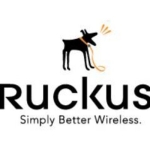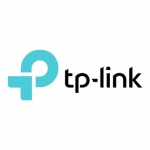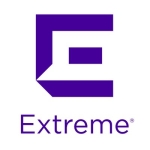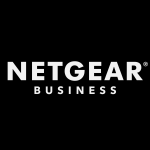What is our primary use case?
The solution was deployed in five locations in The Netherlands. We are in K-12 education. Around 2000 students and 500 staff have used Meraki WiFi for the past seven years.
Younger students have Apple iPads and older students use Microsoft Surface. Staff have a mixture of Dell laptops and Microsoft Surfaces, and can move between sites using the same SSID on all sites.
Infrastructure is mostly Cisco Catalyst switches L2 and L3, with Sophos firewalls. The use of mobile devices is mainly internet browsing, with some local access to internal database applications.
How has it helped my organization?
Cisco Meraki is easy to set up and maintain, yet has issues with firmware updates breaking functions, and not being fixed for months - in one case more than one year.
Roaming seems to be a function they break regularly with their updates, and then cannot find a solution for. They ask us to wait 18 months for a fix, whilst telling us to upgrade to fix other issues, and not fixing the roaming issue.
If you don’t discover the problem within two weeks, they refuse to downgrade you to a working firmware version, leaving you with a non-working one.
And putting the emphasis on you to prove you have a problem. We are a Microsoft school and don’t have Apple, and yet they asked us to find a personal Apple device to install packet capture software on, so they can troubleshoot their issues. It took more than a month to get them to admit there was a problem with their firmware and roll it back to a working version. All the time, students were having problems with roaming.
Licensing is obviously an issue with these devices. You need to buy a license to keep it working. If the license runs out you have no WiFi anymore.
For the last issue I reported, the response from the helpdesk was ‘use a less complex password’. Our password was ‘password’.
On the positive side, they will replace any broken hardware without question.
After five years we decided to replace our old Meraki APs, and Cisco gave a quote for 80 thousand euros, plus they wanted us to relocate every access point to a different position in the building. Another company gave us a quote for a quarter to this price, with no licenses needed and access points in every classroom. Needless to say, we ditched Meraki.
What is most valuable?
It is very handy to have a support number to call. They will replace the hardware the next day if you prove it is broken.
The dashboard has a lot of functions and is fast, and you can configure everything you need from the dashboard.
The app is handy - when it works and you can log in.
Firewall and traffic shaping are very useful. Also, application blocking is handy.
You can see exactly which clients are connected to which device and trace traffic going to that device.
Maps and floor plans are very useful to see where a client is connected.
What needs improvement?
The licensing model is a terrible idea. Don’t buy a license for seven years, you will be stuck with old hardware that doesn’t work properly anymore, and can’t be replaced and you are expected to pay yourself to replace in order to fix their issues. If they can't fix the issues anymore in 7-year-old hardware they should replace the hardware at their expense, however, all they say is you have to buy new hardware. A maximum of a five-year license is my recommendation. WiFi technology moves fast and seven-year-old hardware is no longer workable.
The limit of two weeks on rolling back a firmware update is ridiculous. If you report a problem that affects a whole location they should let you roll back the firmware after any amount of time, not limited to two weeks. Then you have to spend a month every day on the phone trying to persuade them that you have a serious issue with their firmware.
Buyer's Guide
Cisco Meraki Wireless LAN
April 2025
Learn what your peers think about Cisco Meraki Wireless LAN. Get advice and tips from experienced pros sharing their opinions. Updated: April 2025.
845,960 professionals have used our research since 2012.
For how long have I used the solution?
I've used the solution for seven years.
What do I think about the stability of the solution?
The stability is fine until you upgrade firmware and then discover something doesn't work.
What do I think about the scalability of the solution?
The solution is good and easy to scale if you keep the same settings everywhere.
How are customer service and support?
The helpdesk is always available to help you, but their help is very limited sometimes. For example, if you have gone over the 2 weeks deadline with downgrades, they can refuse to downgrade you until you prove to them that your new firmware isn't working properly. So don't expect to have working WiFi for a few weeks, whilst you try and prove to the helpdesk you have a problem. Then after a month they finally admit there is an issue, and agree to downgrade you, and all the problems magically go away. Until the next time, you upgrade.
How would you rate customer service and support?
Which solution did I use previously and why did I switch?
We used Cisco's traditional WiFi with hardware controllers on all sites - AIR-CAP and AIR-LAP
We switched due to the fact that the cloud dashboard to manage all sites seemed like a great idea, no more controllers on-site to maintain, and support was built in to the licensing.
How was the initial setup?
The setup was done by a reseller, who said 'this is a standard install, nothing special' until we had 1,000 students all come into the school after the holiday and discovered it didn't work properly.
Then when talking with Meraki, we discovered the reseller had set it up with default settings, hadn't accounted for high density, and didn't do the channel planning properly. After several re-visits, they did a channel plan and set it up manually, which did help.
What about the implementation team?
Through a reseller. Level of expertise = nil. Meraki had to tell them how to setup the correct channels.
What was our ROI?
High capital expenditure and licensing costs make it an expensive option compared to other vendors in the market.
What's my experience with pricing, setup cost, and licensing?
The cost of the hardware and licensing is extreme compared to other vendors. The Meraki model would be great for small/medium businesses with many locations to manage in one dashboard. However, it's not good for education, the roaming often doesn't work and the rollback is difficult, especially if Meraki decide they are not going to help you, and not fix their issues for 18 months.
Which other solutions did I evaluate?
We might have looked at Ruckus and Aruba, however, Meraki seemed like the best option for us. It was also recommended by Oxford University at an education event.
What other advice do I have?
Make sure it's the right solution for your business. Don't buy a seven-year license as seven years is too long in the WiFi space.
Get a good reseller who will give you good support, not just say "contact Meraki" every time you have a problem.
We are transitioning away from Meraki to another vendor, with four sites down and one to go. There are no regrets so far.
EDIT: 7 years later, our new wifi vendor so much better. Cheaper, stable and much easier to manage.
Which deployment model are you using for this solution?
Private Cloud
If public cloud, private cloud, or hybrid cloud, which cloud provider do you use?
Other
Disclosure: I am a real user, and this review is based on my own experience and opinions.


















